
Google Didn't Want Us To Use The Keyword Planner This Way. But It Works Nicely.
Just practicing my Upworthy titles. Did it make you click? Now that you're here, we'll look at what I'm talking about in a moment.
But first let's set the scene as to why and when you'd want to use keyword planner in such unorthodox manners...
It's 2:30 on a Friday.
Your client's keyword and topic ideas are due at 4pm. Plus, your coworkers are having beers at 3:30 and you don't want to can't miss out on that.
But that's besides the point.
This is a new client. They're in a complicated industry, with lots of weird words and jargon. You're just getting started with the research and don't know anything. And there's NO TIME to waste.
And worse, the "boss" at your client's company who knows the most about their industry is not available to ask questions - you might picture him or her all like;

And even worse than that- you don’t know what you don’t know. How many times have you been working on SEO in an industry for months - and you’re still discovering new keywords?
And very often you feel all like:

Grumpy space cat is grumpy - lost in a land of keyword void.
You Ask Yourself: Do Keywords Matter...
(....enough to miss beer o clock?)
No. Yes! They do matter.
That's when I Intervene.
And I look all like:

Maybe it's the big "KW" on my chest or my stunning sales technique, but you decide to let me show you some fast ways to uncover keywords. Let's go!!
So What's This Crazy Way Of Using Keyword Planner You Made Me Click For?
Total exploitation of the "landing pages" search function. Yep - the ability to enter a landing page instead of keywords to get keyword ideas.
Real fast before we get to the good stuff, we need to set up the concept of the tool. Hop on over to the KW Planner and here's where you can find it;
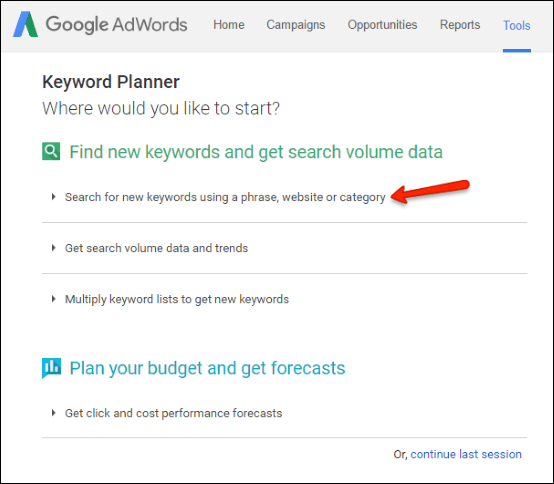
Click on "new ideas" and you'll see the landing page box option;
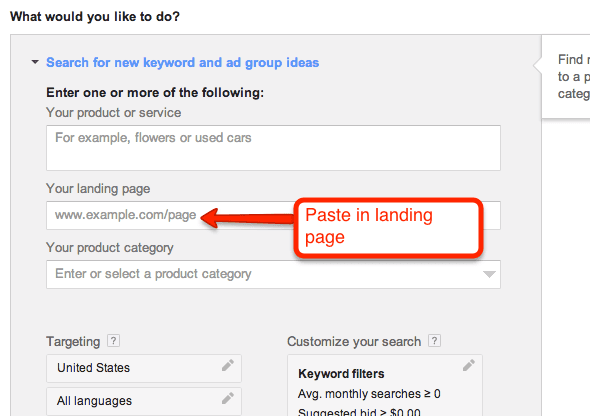
This landing page tool in keyword planner is primarily designed for when you have created a landing page, and you want to place ads to get paid traffic to that page specifically.
For example here I've entered www.anthropologie.com's homepage;
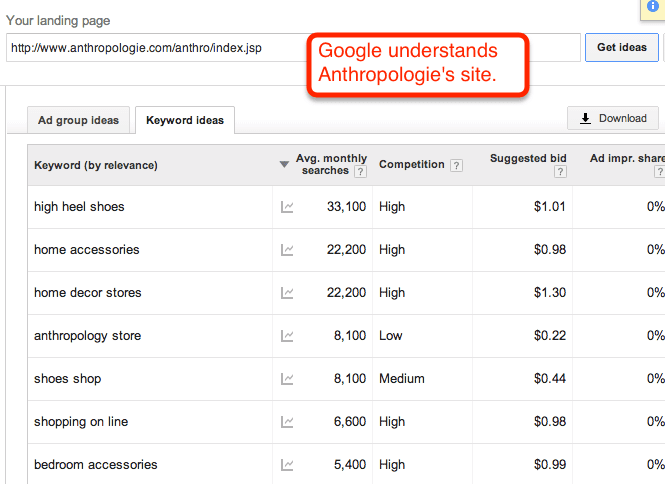
Based upon the results "high heel shoes" etc Google understands the content of the site AND I have keywords to target for that homepage and domain. Ok, got it?
But there's a lot more you can do.
Why just "stick to the rules" with what you're supposed to do with this tool? Let's look at some MORE ways to use it for keyword discovery.
Unintended Way #1. Put Wikipedia Pages In The Keyword Planner
I LOVE exploiting wikipedia for data and information. Why not? It's the largest source of information on the planet organized by topics and keywords within a hierarchy. And Google relies heavily on Wikipedia for the Knowledge Graph.
a) Search Your Industry Term In Google
I would suggest by starting with your main keyword or industry and searching it in Google to get the highest ranking Wiki page - I'll use "cellular repeaters" throughout this first example (have a client in that space right now);
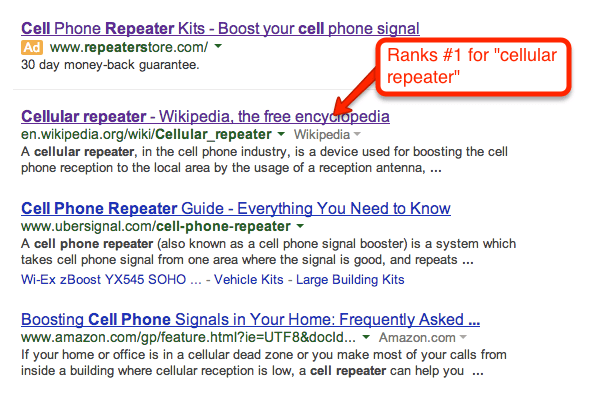
The reason I do this is because I'm sure there are many various pages related to this topic, but we want the one Google considers the best match.
b) Enter The Wiki URL In AdWord Planner
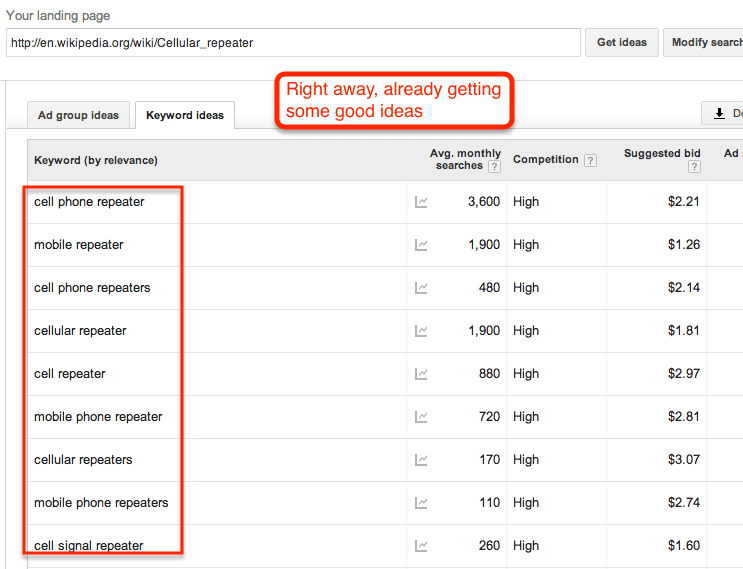
You'll notice there may be a LOT of results, and this list isn't particularly useful right away. So we're going to use some filters.
c) Use Filters To Refine Your List
I often hear people say that "AdWords sucks for keyword discovery". While it's true this isn't the only tool you should use by a long shot, most people probably don't squeeze everything out of it they could either.
The list we got for the Wiki page on "cellular repeaters" was fairly large. Setting filters in the tools digs up MORE keywords. You may notice if you start using filters, the number of results may not go lower, until you start getting really tight with the filters. This means the filters are requiring the tool to dig deeper into the keyword database for suggestions.
Let's say we want high volume AND high transaction potential keywords. (Hat tip to Ross Hudgens for first suggesting the idea to me of looking at CPC for how much a keyword is could be "worth" for SEO)
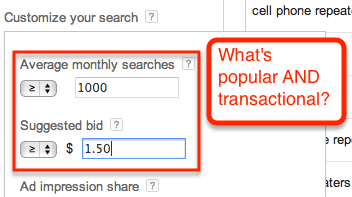
The filters here are asking for high volume AND higher bids. It's going to refine our list of words and present keywords which may receive more traffic and also potentially monetize better;
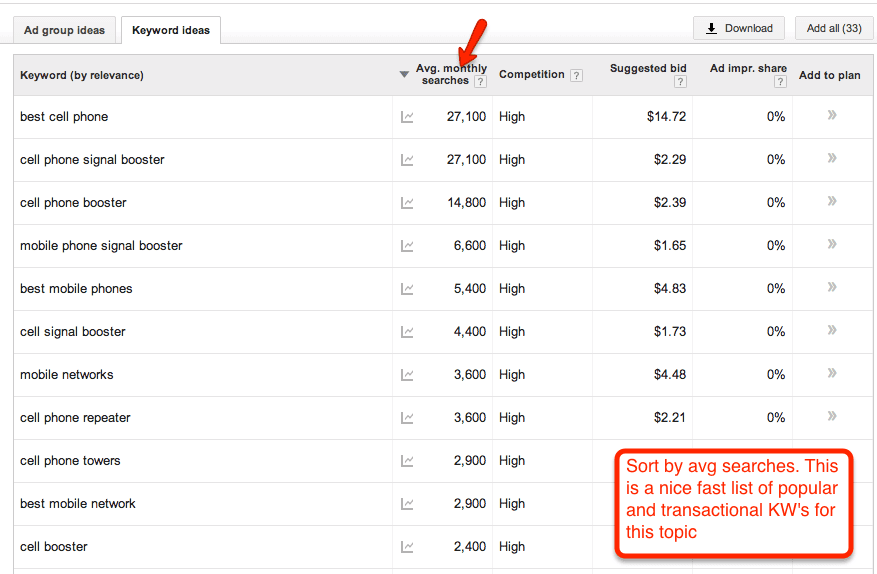
We could also filter by high volume but LESS transactional (more informational)
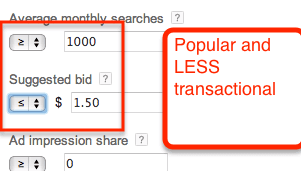
Again, we're going for a tightly filtered list to really dig up a nice short list to give you ideas. (You are exporting and saving all of your ideas for later right? To then combine the lists, and de-dup them for analysis?)

So if you're still seeing a few hundred results, there's room to filter more. Here's a nice filtered list I arrived at;
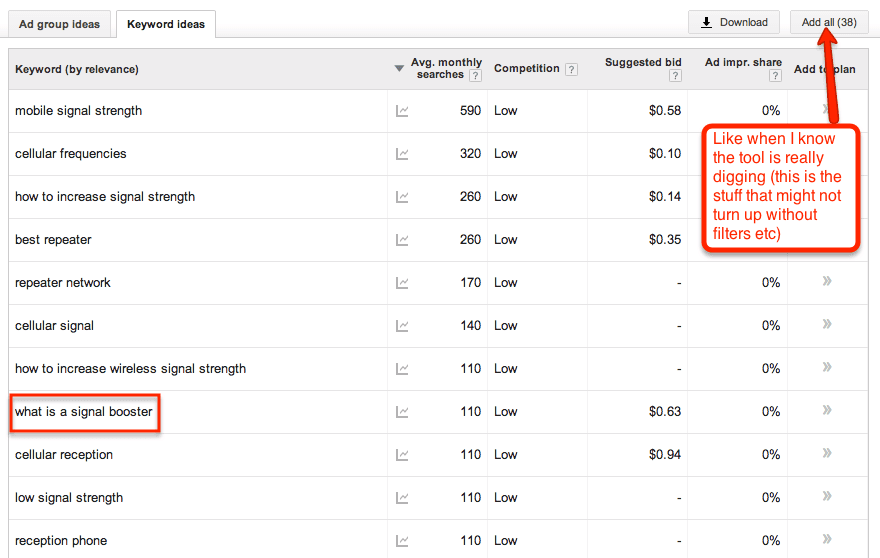
With the recent addition of Google's knowledge answer boxes, I'm especially on a lookout for these sorts of keywords. I spotted "what is a signal booster?"
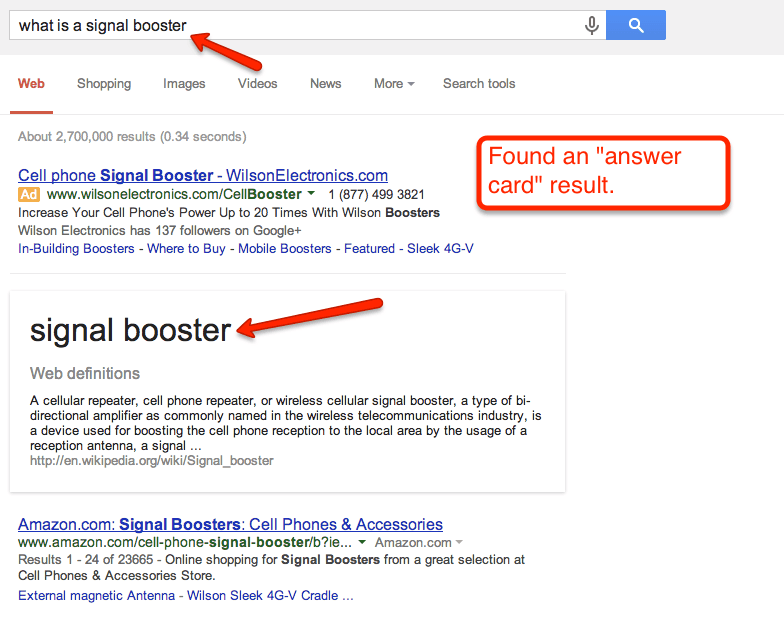
Not only is this a keyword I may think about building a page around, it also turned up another Wikipedia page to run through the landing page tool.
d) Find Pages Linking To Wiki Page With OSE
No reason to stop there! There's probably lots of high authority, information rich pages that have linked to the wiki page;

In this case it's an article from MIT;
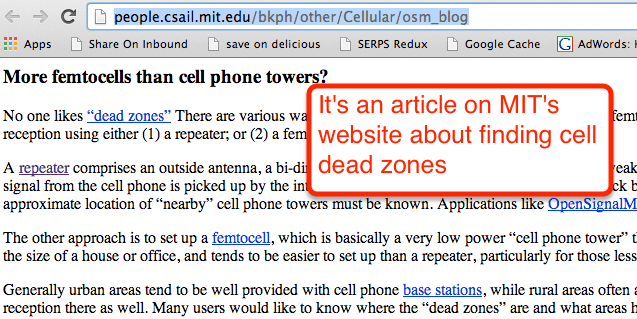
Check out the topics from this MIT article;
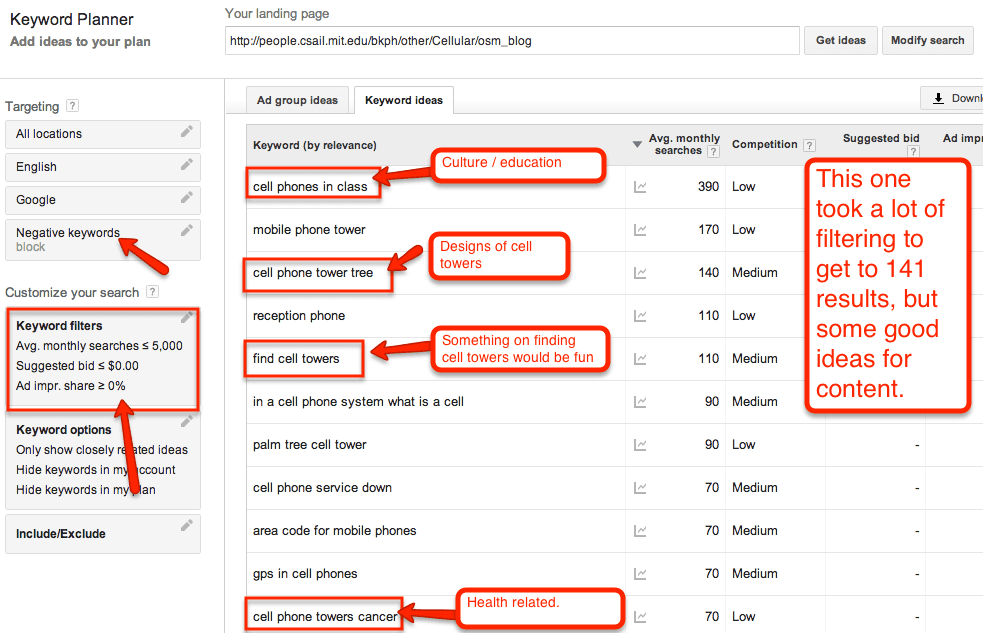
Click for a bigger view. Wow! There are some nice topic ideas here. If I had a website selling cellular extension products, I might write about;
cell phones in the classroom (nice cultural / education tie in)
cell phone tower trees (the design of cell towers)
find cell towers (how to find them)
cell phone towers cancer (health implications)
I want to stop here and remind people. Keywords are a bridge to understanding the psychology of the searchers. They're a window into the mind of your potential site user. I'm not saying we would choose "find cell towers" and solely use that as a singular keyword target. We would use that as a springboard to further content ideas and research.
But the point is, we discovered this topic idea in about 5-10 minutes, in a complex industry, in which we had no prior knowledge. THAT'S the benefit of this process.
e) OSE To Get Other Closely Related Wiki Pages
Why stop at that one Wiki page? I suggest using Open Site Explorer to find other popular wiki pages which link to your seed wiki page by "filtering internal" in OSE;
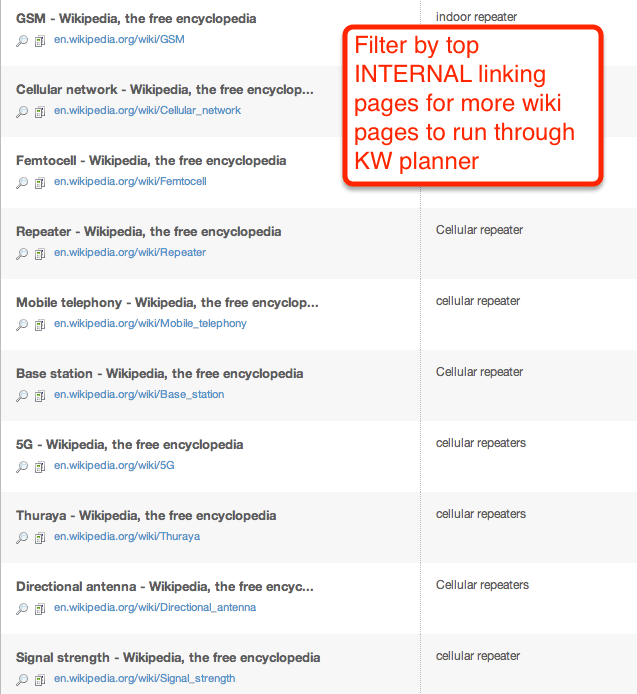
Now we have a list of the highest authority wikipedia pages linking to our seed page - go run those through the keyword planner too!
Unintended Way #2. Put Your Competitors In Keyword Planner
I especially love this for prospecting new clients. It's one of the fastest ways of judging the competition in an industry.
Your competitors have already done a lot of the work right? They've possible researched keywords, designed pages and targeted them. I suggest finding competitors with higher authority sites than yours as there will be the most data.
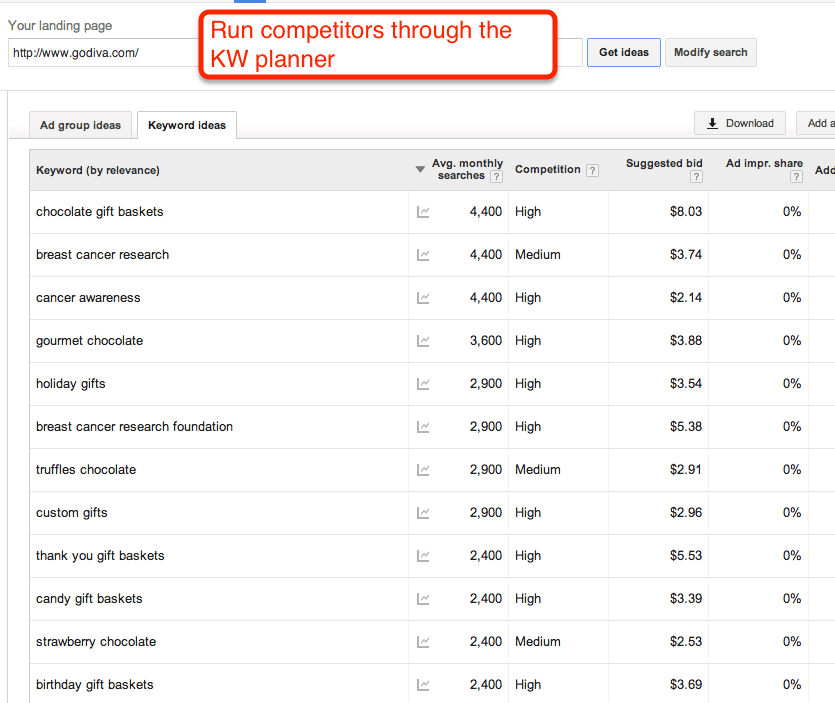
As noted above, this list is decent, but use those filters to keep refining to dig up words the tool might not present right away;

In this case we had to get super specific with the filtering to trim down the list;
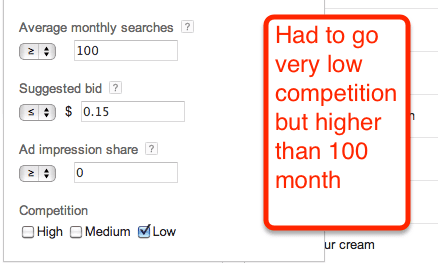
This turned up some good stuff like "fathers day desserts" and "pre filled easter baskets" - things that may have not turned up. We've also set AdWords competition to "low" and although this doesn't automatically mean low SEO competition, it could.
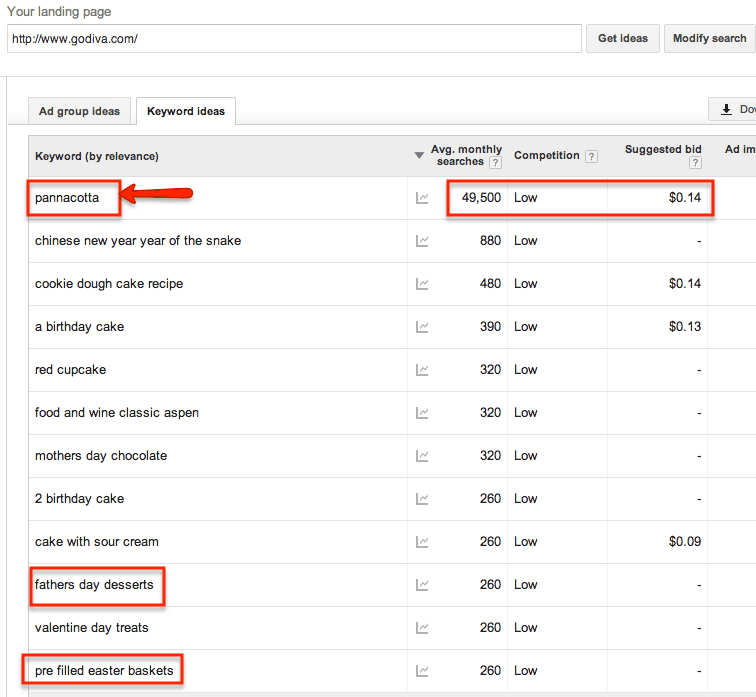
Unintended Way #3. Put Pinterest Search Results In Keyword Planner
Before we look at Pinterest, I just want to stop and point out. For all of the examples, the key is finding sites that are;
highly authoritative
organize information well by topics
are rich in information
Despite Pinterest being heavily visually oriented, I still found that it returned results with the tool;
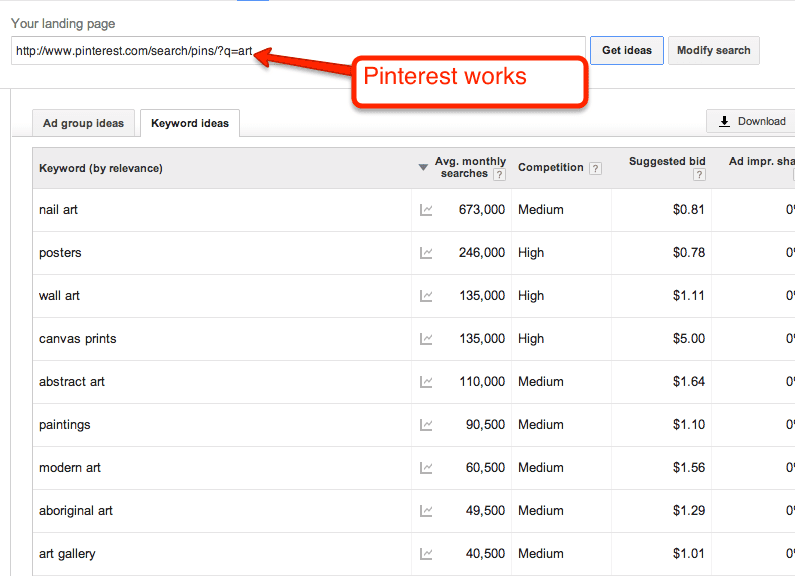
Play with your filters and we're getting some good ideas for "art";
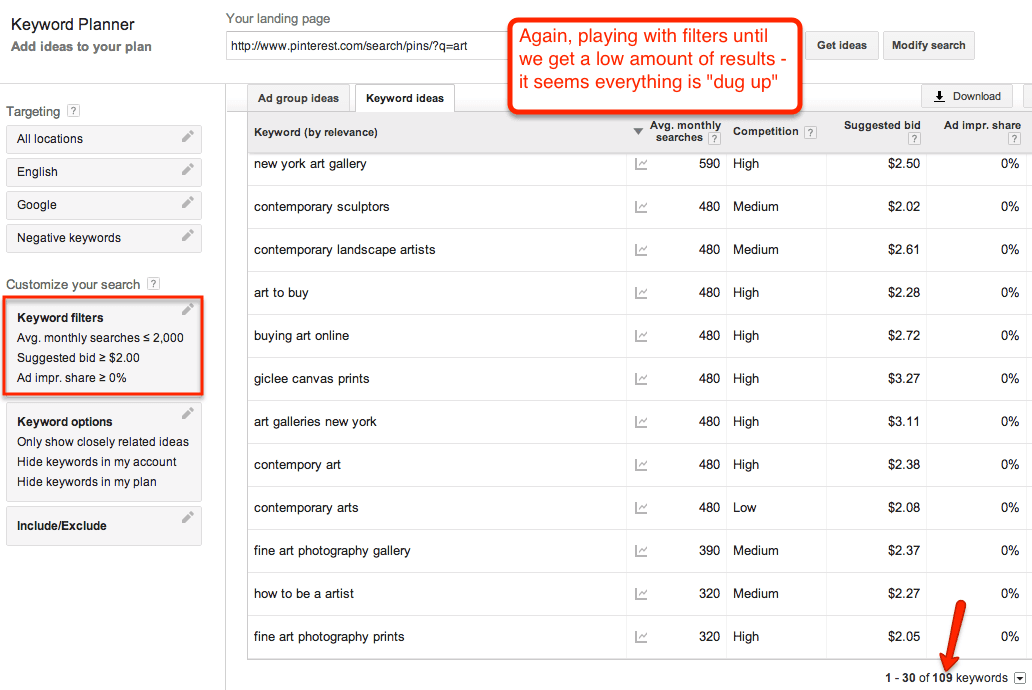
Unintended Way #4. Put Reddit Topics In The Keyword Planner
Obviously this may work better with certain topics, but I had some luck with education;
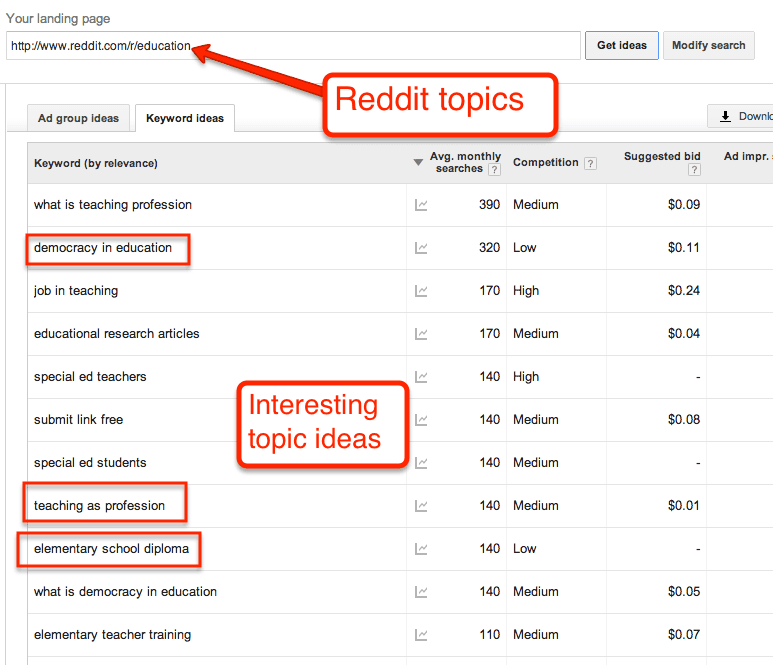
Unintended Way #5. Put Industry Conference Topic Pages In The Keyword Planner
I LOVE using conference websites for topic discovery, especially in newer or fast evolving industries like anything in tech, marketing, entrepreneurship etc. Just search for some conference pages, find the topics/sessions page and drop that into the keyword planner - I tried this for "human resources";

Unintended Way #6. Put Industry Forum Topics Into Keyword Planner
Other huge places of authority and topic categorization are industry forums. Note that Google recently dropped the discussion search function - so the best way to find industry forums are [keyword] + discussion forum;
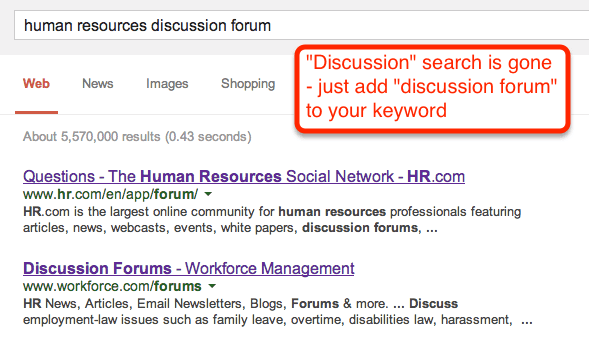
The once you've found a good high trafficked one, drop that in the keyword planner;
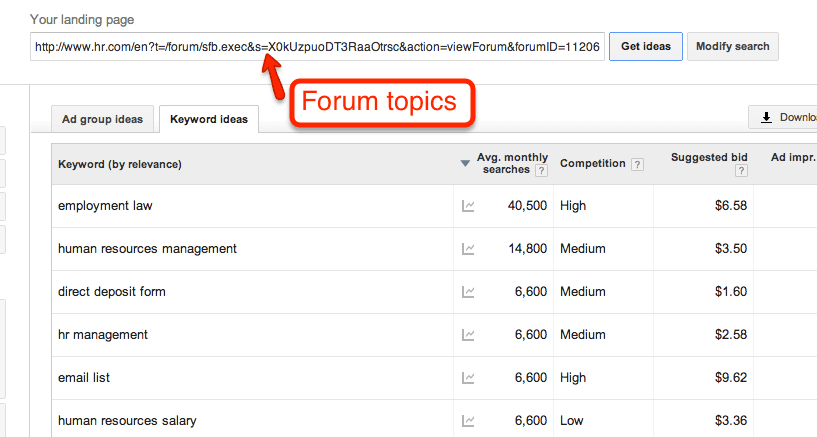
Unintended Way #7. Put Dmoz Categories In Keyword Planner
I like Dmoz because it is very well structured by topics and sub-topics.
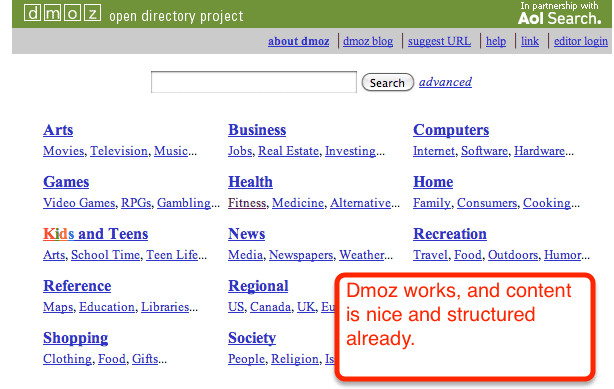
Find your topic page in there and drop that into the keyword planner;
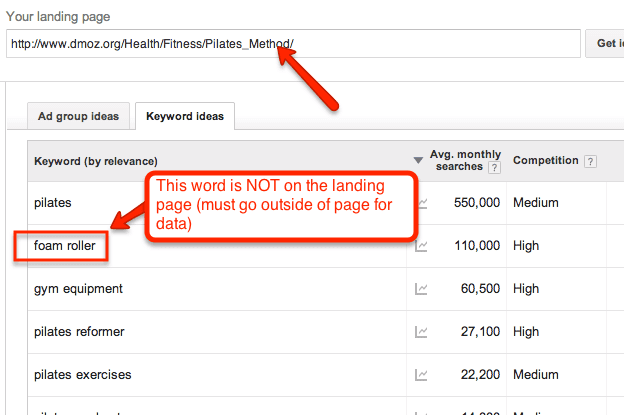
One thing I want to point out. The keyword does NOT have to be on the "landing page" for it to return in the tool. As you can see by the "foam roller" results (which is no where on the Dmoz page) - yet a "foam roller" is a very common piece of equipment for pilates.
Unintended Way #8. Put Freebase Categories Into Keyword Planner
Besides Wikipedia, Freebase is likely the largest source of data related to their Knowledge Graph. It is therefore likely a powerful source of research, even for keywords and topics;
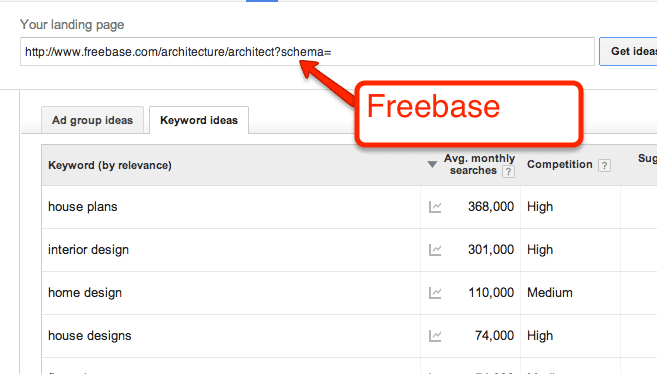
The "architect" category page gives us lots of ideas like "house plans" and "home design" - this isn't a filtered search, so likely a lot to be discovered if we start digging.
Still Need More Keyword Discovery Ideas?
By now you should be well on your way to finishing your client's report AND that cold beer. Want some more for next week? Check out my slides from SMX where I talked about 17 more ways to discover keywords!
What other landing pages can you think to drop in the Keyword Planner?
Put your ideas in the comments and examples of what you discovered.
PS - shout out to Josh Bachynski who was the first I heard suggest using the keyword planner landing page tool for these sort of "out of the box" purposes.
Note: The opinions expressed in this article are the views of the author, and not necessarily the views of Caphyon, its staff, or its partners.
Editor's Note: This post was originally published in February 2014 and has been updated for accuracy.
Article by
Dan Shure
Since starting his company Evolving SEO in 2010, Dan has worked with startups, eCommerce sites, bloggers, affiliates, small businesses to large companies and everything in between. He shared his experience on his own blog and others and spoke at several industry events such as SMX East in New York.
stay in the loop





